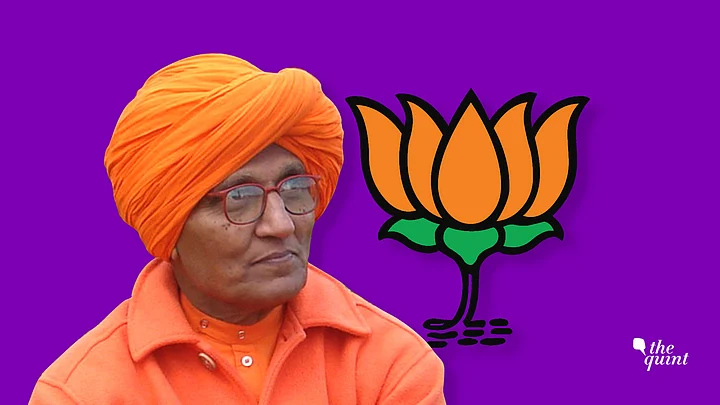There’s a thing out there on twitter. #TalkToAMuslim. A vapid, blue talisman, that sounds like it’s asking the Twitterati to confer with aliens.
To those hash taggers I want to suggest, in the same strident blue – #TalkToASanghi.
It could be someone from the umbrella of the official Hindu right wing – from the BJP to the VHP, RSS and Bajrang Dal, or someone who doesn’t officially subscribe to anything – but who settles on your drawing room couch and declares, “You know, those Muslims… they are all fanatics.”
That uncle or cousin or friend’s husband, who stops your dinner in its tracks, and then carries on as if their conversation has nothing to do with the ‘Lynchistan’ we have become. Tell them they are IT. They are the mob. Stop that dinner because it is time.
Politicians Speak Our Thoughts
Say you will walk out of the conversation, the room, or the house, and that you are willing to bear the consequences – of being the pariah in the family. The object of ridicule, sniggering – an all-out war with your parents even. Because that is what it means to stand up for something. To stop a mob in its tracks. I don’t preach this from a pulpit – I am struggling, and I suck at it. But I’m putting it out there to display to us our collective failure. Our unwillingness to put ourselves in even the slightest bit of discomfort to change the toxic, turgid political cesspool we’re swimming in. Well, I for one, have had enough.
I know that we are a fragile democracy, holding out against total subjugation by centrist forces, one drawing room at a time. Before opinions are made in Parliament or on TV, they are formed in conversations with impossible uncles.
Who holds out against whom, cascades upwards and outwards, till it reaches the cynical ears of our politicians. Those politicians that garland members of lynch mobs, are feeding us what they hear us speak about. What they think we want. If we don’t care about secularism, they say they don’t. If we don’t care about the Constitution and equal rights, they behave like they don’t. Perception is everything, and it gets made and unmade, one dinner-table conversation at a time.
Two Shades of Saffron
I know that, because I have been tracking these conversations about religion and lynchings in the place where they worked the most – in Gujarat. In the place where the perception was, that you can only win an election if you polarise the votes – and it worked, until the repeated use of the same technique stopped delivering to the same Hindu-leaning voters. Because it gave them Hindu majoritarianism in Gujarat, and then what?
One and a half decades later, the Gujarati voter has looked back and said, well frankly, it doesn’t add up to much – ‘My pockets are empty and the fields are dry. Stocks are down. So even with the Muslims silenced into submission, what has that brought to my table?’
The conversations have shifted. And so did the votes in the assembly elections in December 2017. More than half the rural population of Gujarat voted against the BJP.
Nationally, this will be much harder to achieve. There is already too much Hindutva in our drawing rooms. Both the BJP and its opponents know this. Both are cynically calculating, that the conversations we are having with our uncles and cousins, are still ones where the uncle wins, and we walk away quietly.
The BJP and the Opposition are two different shades of saffron.
The other colours are disappearing the way dissent against a full-fledged capitalist economy disappeared in the mid-1990s.
The Slippery-Slope Called ‘Lynchistan’
When India opened the economy to foreign investment for the first time in 1991, I was in college. Our classrooms and drawing rooms were battlegrounds for pro and anti-liberalisation. Since the Congress government had opened the floodgates, the BJP initially opposed it. They ran a campaign saying things should be ‘made in India’. Swadeshi goods versus the Evil-Knievel of ‘phoren’ (foreign) goods – imperialism by another name.
Then they realised, this wasn’t working. Everyone from the new middle-class, including their own supporters, were running to the nearest McDonald’s and Nike stores.
So they adopted liberalisation wholesale, and made it their mantra when they formed the next government.
Now, the Congress and its allies seems to be making similar calculations about Hindutva – Hindu majoritarianism. They say stridently secular things. Then Rahul Gandhi does the rounds of temples before an election. And even more disturbingly, their newest ally – the JDU – made a cynical calculation about what offends the masses. Soon after H D Kumarasamy formed the coalition government in Karnataka, saying this was the ‘coming together of secular forces’, he withheld the release of Rajinikanth’s new film in Bengaluru. He said it would hurt public sentiments.
We are in danger of being held to ransom by trigger-happy, lynch-a-day mobs, that no one, from the Karnataka chief minister to almost any politician, is willing to offend.
Hindutva has therefore, become the new normal, limiting our choices to hard Hindutva and softer versions. This is a slippery slope leading us to the ‘Lynchistan’ we have become. If we want to reverse the tide, we have to do it one drawing room at a time. I pledge here to start with my uncle, and urge you to do the same.
(Revati Laul is an independent journalist and filmmaker based in Delhi. She tweets @revatilaul. This is an opinion piece. The views expressed above are the author’s own.The Quint neither endorses nor is responsible for them.)
(At The Quint, we question everything. Play an active role in shaping our journalism by becoming a member today.)


